Part 1 / Copenhagen
(Really) good ’hoods
Copenhagen’s districts, distinct as they are, share some familiar qualities: they are livable, lovable and constructed on a human scale. Oh, and 20 minutes on a bike is all you need to dash from ’hood to ’hood.
Nordhavn
Neighbourhood 1
What was once a gigantic port is being swiftly transformed into a residential area teeming with exciting architectural projects; landmark buildings such as the Silo (pictured); and the latest extension to Copenhagen’s beautiful, often-unsung Metro system. The city’s northward expansion is the largest sustainable urban planning project in Scandinavia and uses that clean harbour water wisely: harbour-side saunas and bathing sites such as Dyppezone 2 encourage bathing all year round.
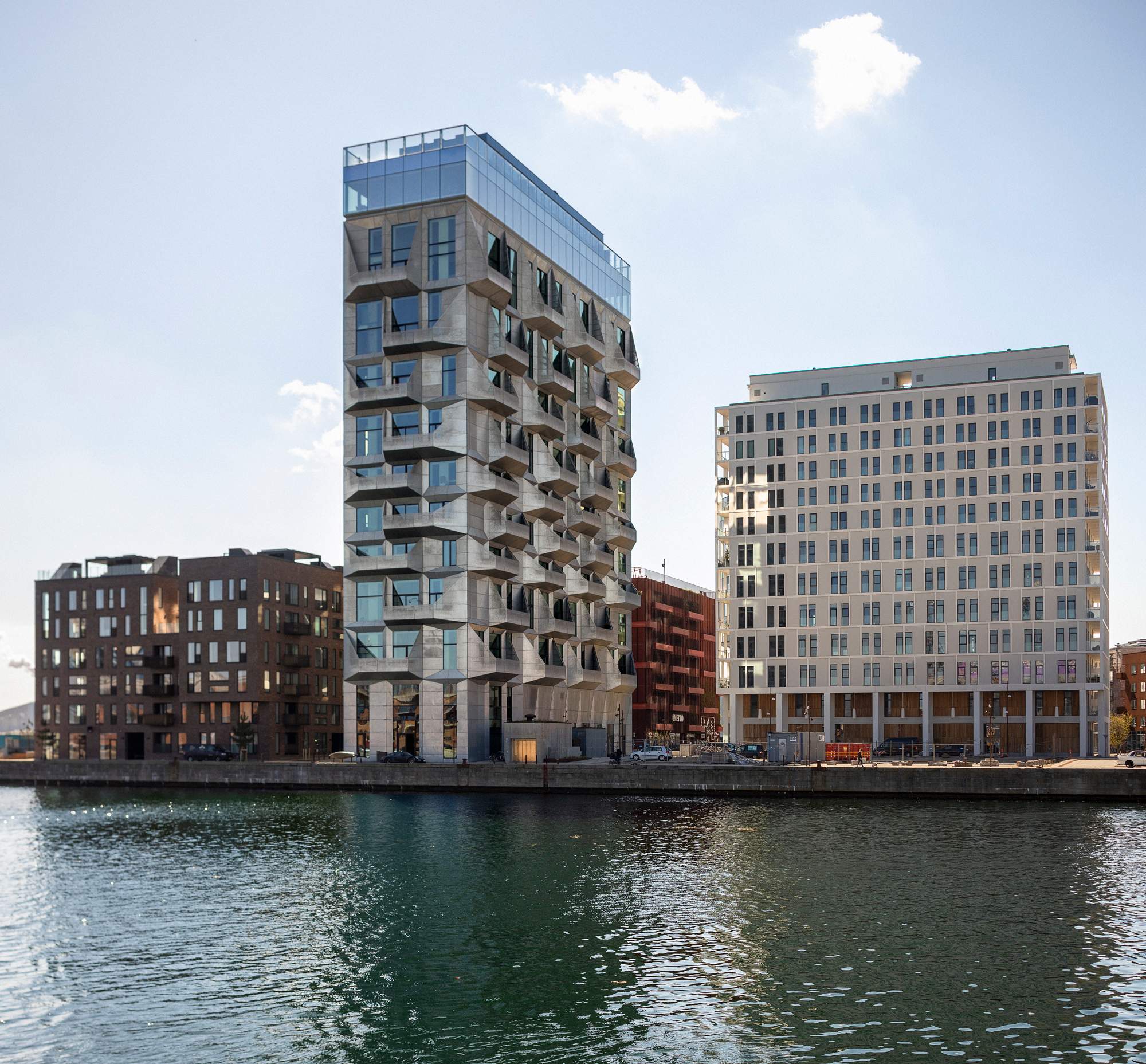
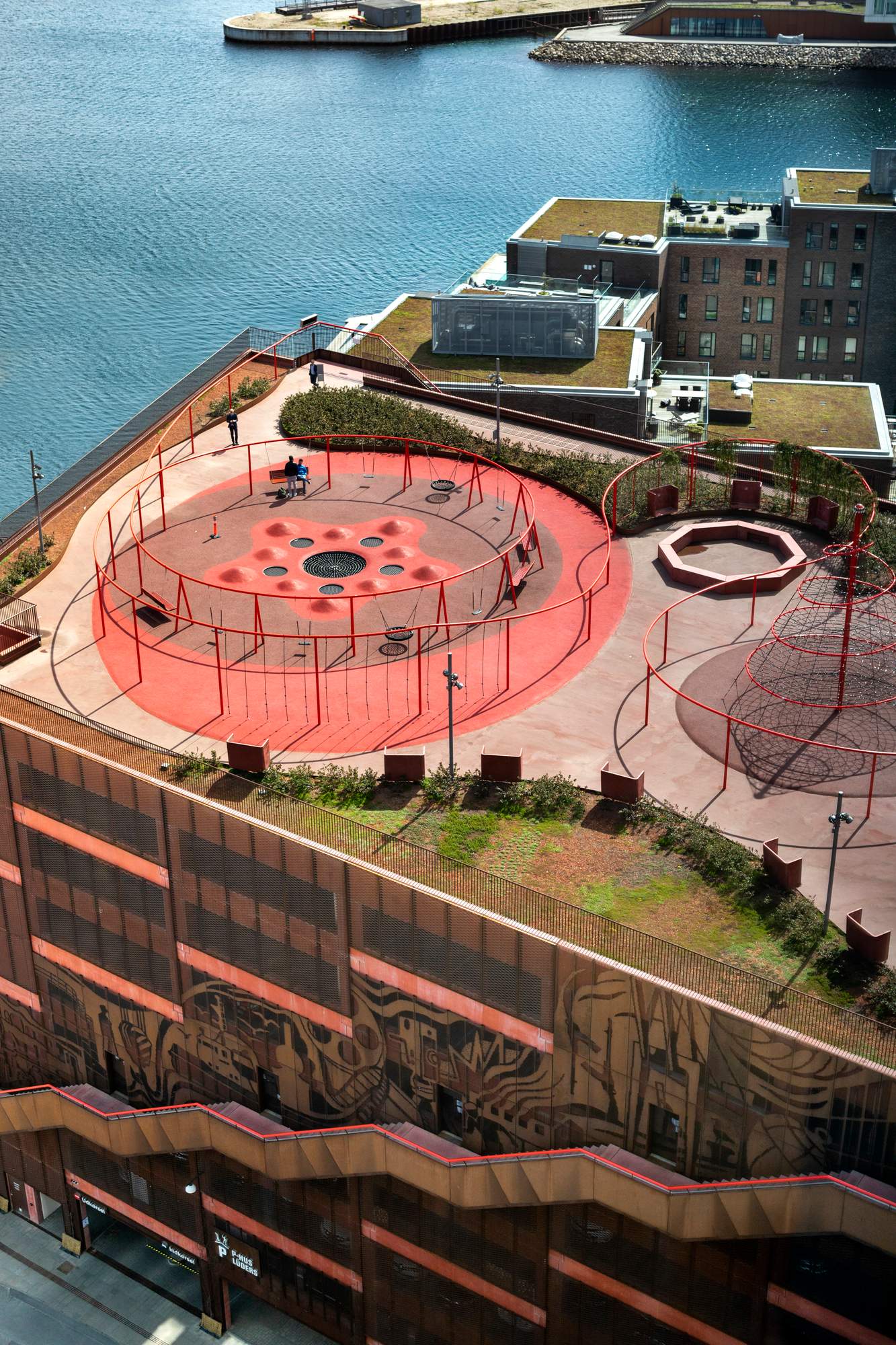
Nordhavn is full of sustainable and health-enhancing architecture. Konditaget-Lüders is a 2,400 sq m rooftop park and playground, with a staircase for in-training mountain-runners. Elsewhere, the International School has the most solar panels of any building in the world.
Nørrebro
Neighbourhood 2
A dash north of the very centre of Copenhagen sits friendly, unpretentious Nørrebro. There’s a certain baby-Berlin feel to its wide, tree-lined streets, handsome apartments and array of shops and restaurants – the good vibes of which spill out onto the pavements (but not the bike lanes, naturally), even in the cooler months. Youthful, bustling, diverse and green, Nørrebro distils Copenhagen’s key attributes into a few square kilometres.

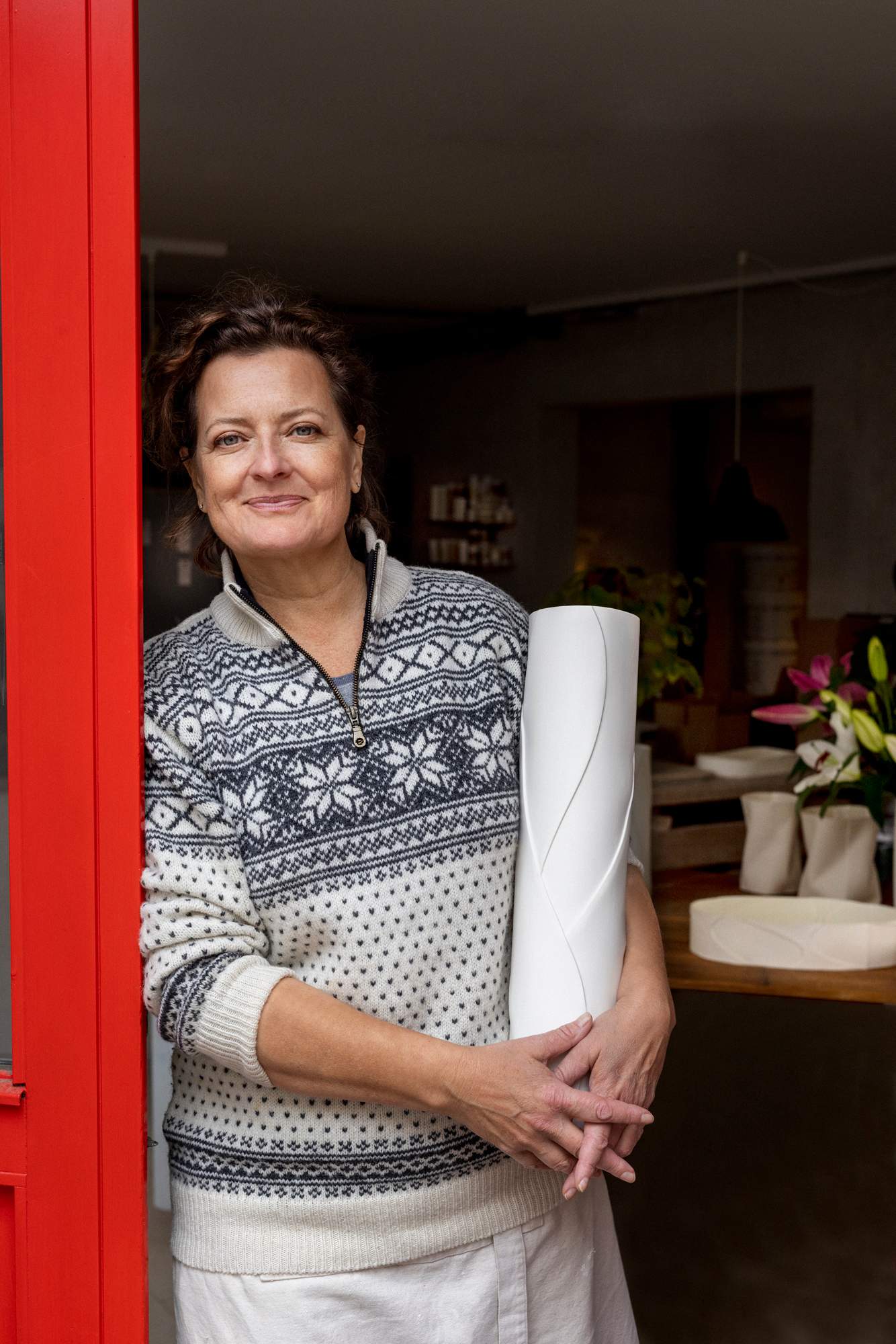
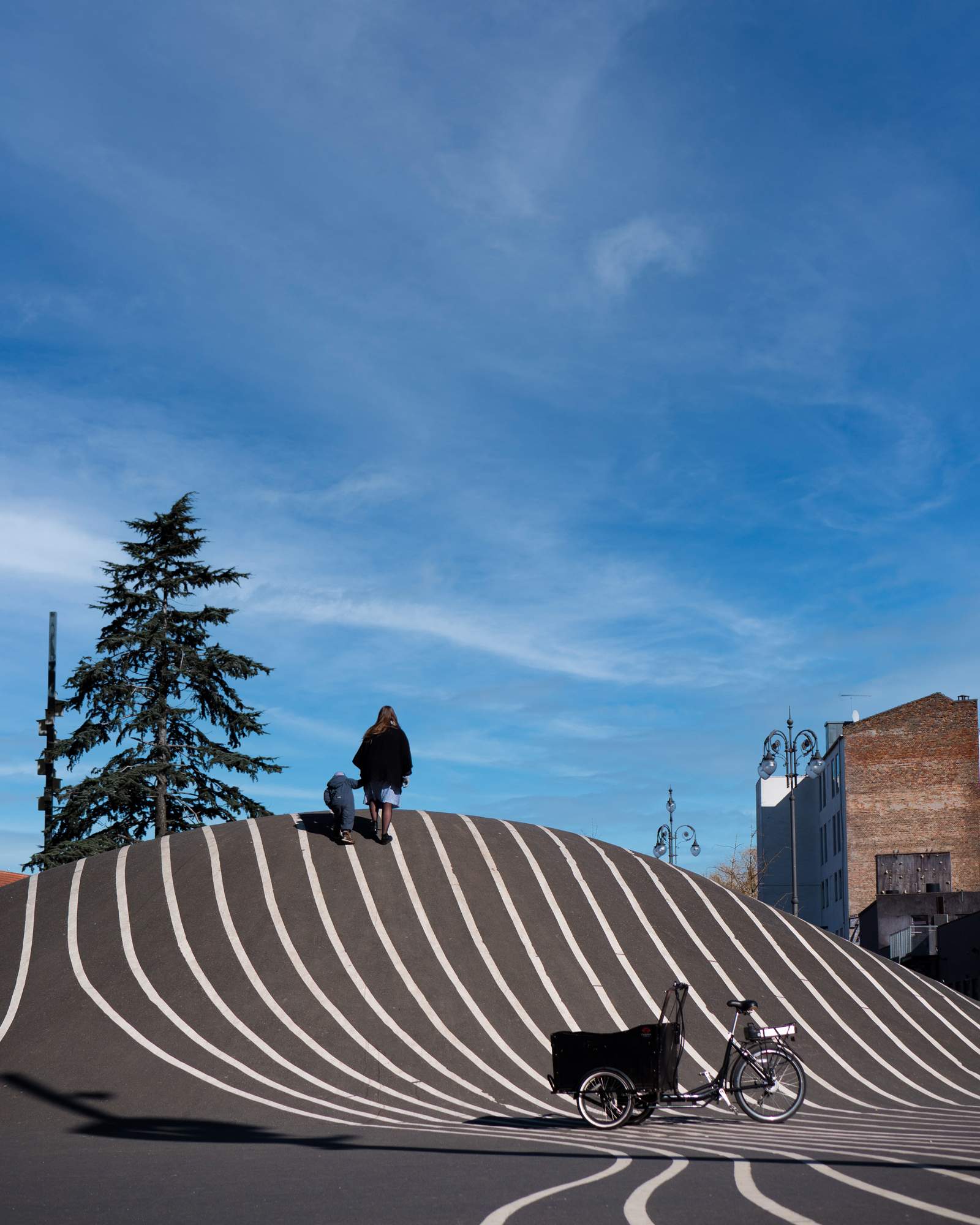
We’d advise a bike with a shopping basket for a trip through Nørrebro and finishing your tour around charming Jægersborggade and Guldbergsgade: try some sustainable fashion for size at Res-Res, browse the design objects at Gågrøn and bring home a ceramic souvenir from the artist Inge Vincents.
Refshaleøen
Neighbourhood 3
Again, urban renewal is the central story in Refshaleøen, just across the harbour from Nordhavn. Formerly one of the world’s mightiest shipyards, this is now the home of creatives, inspiring workspaces, entrepreneurial ventures and some seriously lovely houseboats. Refshaleøen is also home to the Danish restaurant revolution: a spin on your bicycle will take you to coffee and cakes at La Banchina (with its own swimming spot and sauna – why not?) lunch at Noma surrounded by its lush garden, the full-blown “responsible deliciousness” of Amass’s veg-tastic menu and the full theatrical dining experience at Alchemist. The neighbourhood’s food and music festivals will ensure that visitors take the last (fully electric) ferry home.
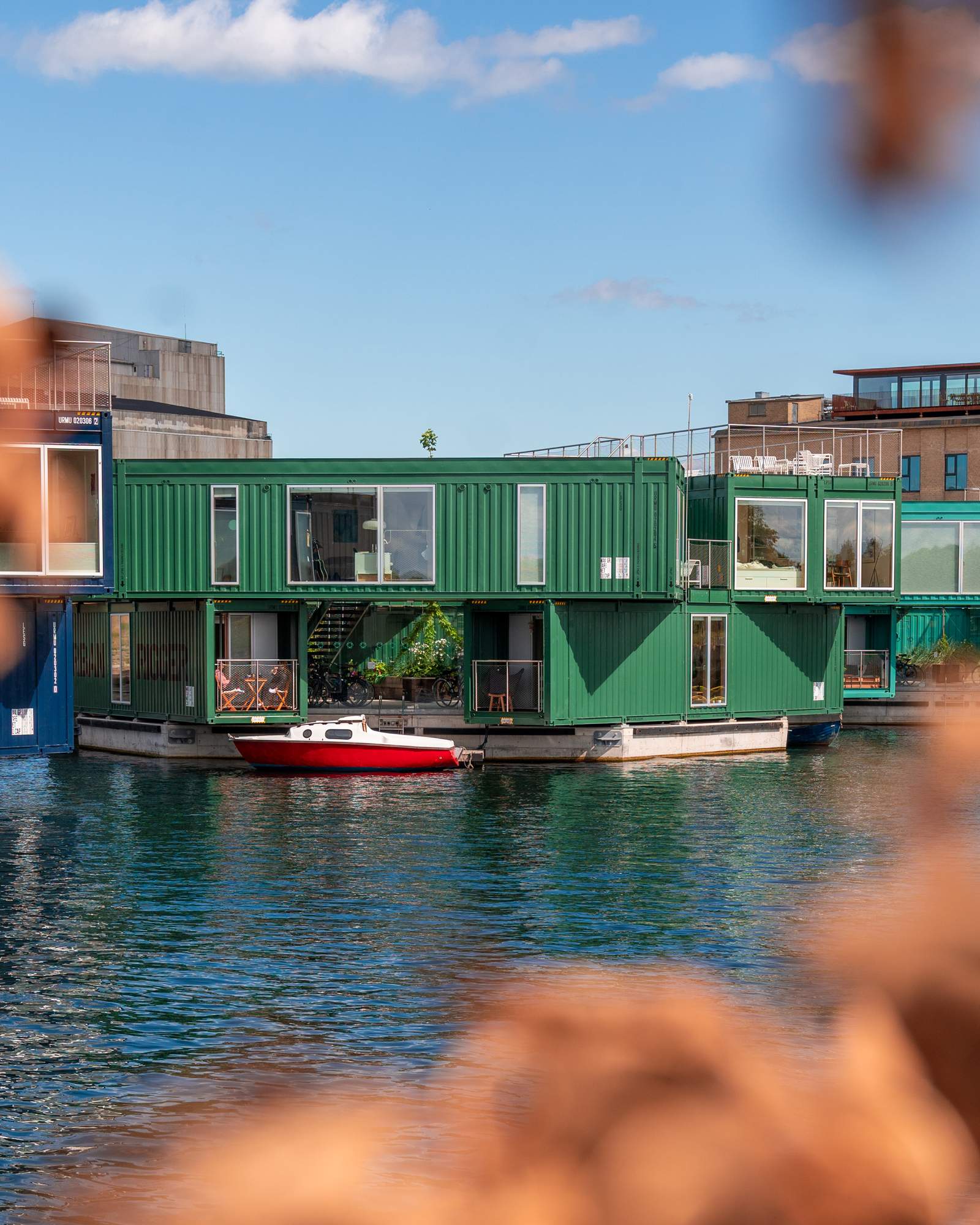
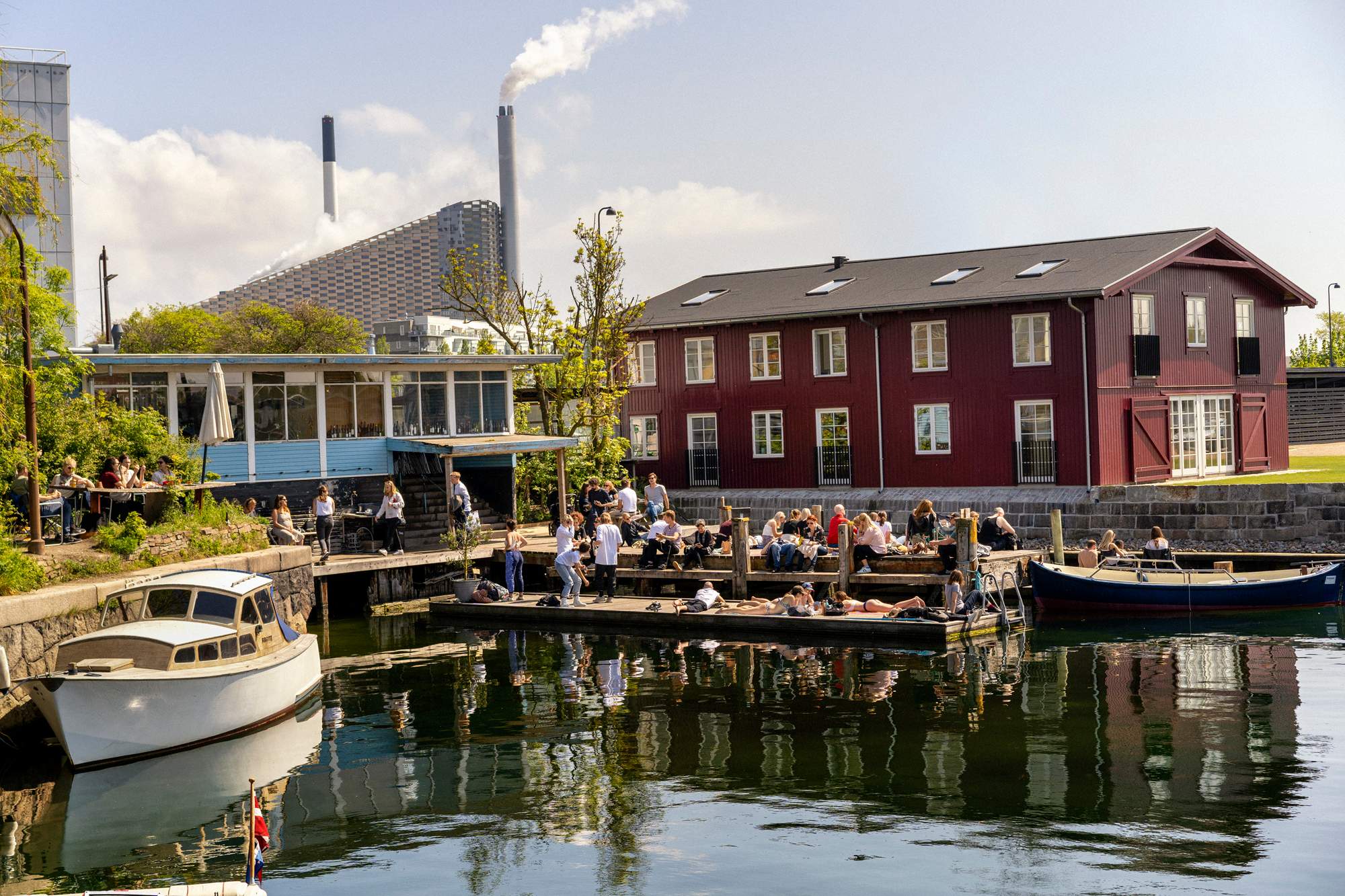
Danish architect Bjarke Ingels has left many fingerprints on his home city. His Urban Rigger project, consisting of student apartments fashioned from shipping containers, is another green landmark. The solar-powered floating flats are a typically witty take on waterfront living.


